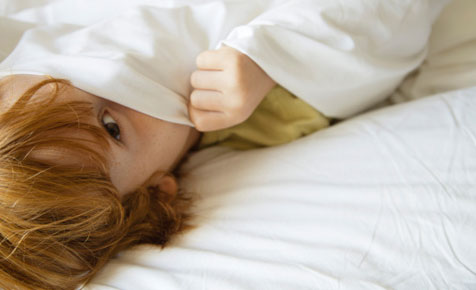Bedwetting in children is a common condition and is nothing to be alarmed about. Most children learn how to control their urination by the age of four but learning nighttime control takes longer. Generally children get better at this between five to seven years of age, but if you notice that your child struggles with staying dry during the night, here are the most common causes you should consider.
Overstimulation and Stress
Children who are very active during the day might feel overwhelmed by all the stimulations around them and consequently stress themselves out physically and mentally. This stress often leads to bed wetting at night and it is recommended that you balance your child’s daily activities to ensure healthy stimulation levels.
Underdeveloped bladder
Since the human bladder basically holds the urine until it is excreted, an underdeveloped bladder can let go easily and result in bed wedding. Like other parts of your child’s body, the bladder also develops with age and bed wetting stops eventually.
Diet
Some foods and drinks, especially fizzy drinks, tea and coffee, stimulate the production of urine, and if consumed before bedtime, are guaranteed to lead to bedwetting. It is recommended that you carefully monitor your child’s diet and prevent the consumption of these drinks in the evening.
Genetic predisposition
According to research every one out of seven children who face difficulty with bladder control has family members or relatives who also experienced bedwetting in their childhood.
Gender
Boys and Girls have different bladder issues growing up. While girls are more common to face daytime wetting, boys are more likely to wet the bed at night during childhood. However, by the time children enter their teens the statistics even out.
Remember, bedwetting is a normal and common condition and is not the child’s fault. While you may feel frustrated with the child, you should realize that he/she probably feels more embarrassed and needs encouragement and support to overcome the problem. You should generally advise your child to urinate right before getting into bed and not drinking anything afterwards. If you have a child with bedwetting issues, do drop us a comment below to share any tips you use to cope with it.
Image courtesy: kidspot.com.au




No Comment